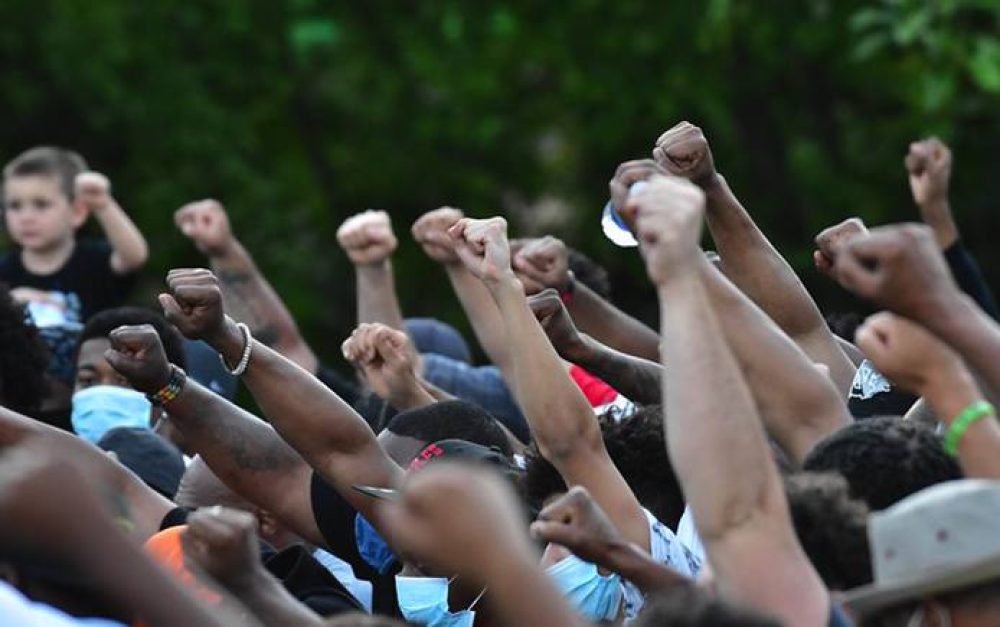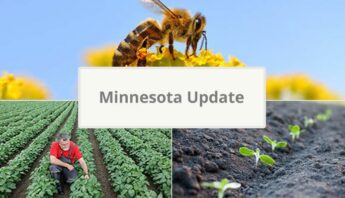One week ago, George Floyd was killed by a police officer on the streets of Minneapolis. Here at PAN, we are outraged by the senseless murder of this unarmed Black man, and also by the brutal killings of Breonna Taylor, Ahmaud Arbery — and so many others.
One week ago, George Floyd was killed by a police officer on the streets of Minneapolis. Here at PAN, we are outraged by the senseless murder of this unarmed Black man, and also by the brutal killings of Breonna Taylor, Ahmaud Arbery — and so many others.
We stand firmly in solidarity with the Black community and protesters of all races who are out in the streets in communities across the country, demanding justice and calling for an end to systemic racism and oppression. We fully support the “Enough is enough” call to action from Black Lives Matter organizers:
Our pain, our cries, and our need to be seen and heard resonate throughout this entire country. We demand acknowledgment and accountability for the devaluation and dehumanization of Black life at the hands of the police. We call for radical, sustainable solutions that affirm the prosperity of Black lives.
Our thoughts are with George Floyd, his family and community. In this case, the killing occurred in a Minneapolis neighborhood where PAN staff live and work, so the tragedy hits particularly close to home. His death underscores the harsh reality that racism is real and deadly, and addressing it must be core to any and all organizing for social justice.
Racism in the food system
Here at PAN, we understand that dismantling systemic racism is central to our work of creating healthy, just food and farming systems for all. From sidelined farmers of color to exploited farmworkers (including farmworker children), racism is present and prevalent in all areas of our work.
The COVID-19 crisis has underscored the deep injustices built into our food system, with (mostly black and brown) farmworkers and food chain workers designated “essential” and forced to work, but having to fight for sick leave and hazard pay during a pandemic.
From the nascent years of our country to today, the United States has produced food with the sweat and blood of unpaid or vastly undervalued labor. The links between racial justice and food justice are very clear.
Toward justice
We know racism in the food system cannot be resolved without tackling the underlying structures that hold it in place. In our statement of organizational values, we commit to “being a visible ally and taking public positions not only on oppression within the food system, but also within the broader social justice movement.”
These values guide the work we do, every day.
The uprisings in communities across the country have shone a bright spotlight on police brutality, and the way militarization of police departments unnecessarily escalates tensions and causes direct harm to marginalized communities. In addition, more than 100 journalists have been attacked by police over the past week, directly undercutting the constitutionally protected freedom of the press.
Yet there have also been inspiring moments of solidarity, with thousands — of all races — showing up to protest in communities across the country and around the world. Community members and local businesses have stepped up to support protesters in dramatic ways, from food donations delivered from local farms to free meals and supplies.
When the Gandhi Mahal restaurant in Minneapolis was damaged by fire last week, the owner released this solidarity statement: “Let my building burn, justice must be served.”
Longer term changes are in motion as well. School districts are considering community safety crews as an alternative to campus policing, and some politicians have pledged to work with the Black community toward real reforms. As Dr. Martin Luther King Jr. noted more than 50 years ago:
The whirlwinds of revolt will continue to shake the foundations of our nation until the bright day of justice emerges.
Actions to take, now
PAN is doing what we can in this moment to amplify the voices and support the urgent demands of Black community leaders across the country, and we encourage all in the PAN community to do the same.
Here are some specific ways to get involved:
- Take action each day this week as part of the Week of Action organized by the Movement for Black Lives. Now is the time to show up.
- Donate to an emergency rapid response fund or bail fund supporting protesters in your community.
- Sign this petition to defund the Minneapolis police, and otherwise support Reclaim the Block, a community-based group in Minneapolis that’s been organizing against police brutality since 2018.
- Watch this 7-minute video from the Minnesota Black Visions Collective, and follow and amplify Black leaders on social media, in the food system and beyond (check out @SoulFireFarm, @saafon4farmers, @Mvmnt4BlkLives and @ericabuddington on Twitter — there are many more).
Finally, we urge everyone to get involved in the politics of your local community. And, vote for anti-racist leaders and policies, at every level of government.
Photo: Anthony Crider | Flickr








